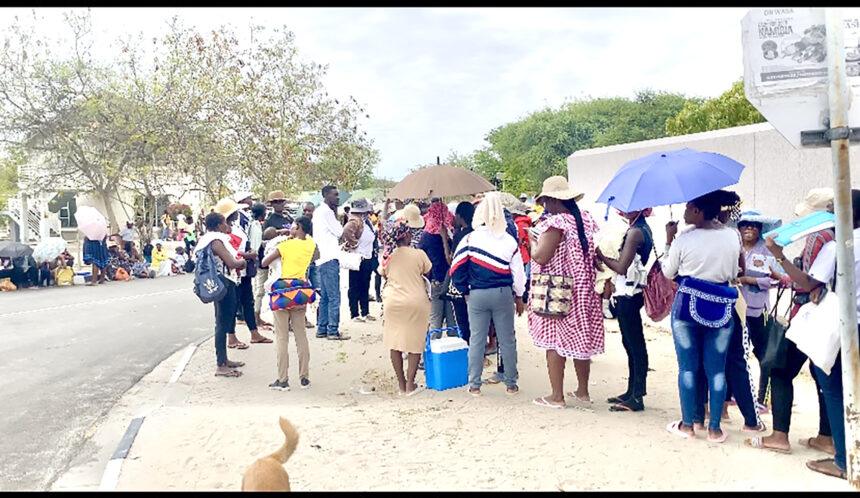Auleria Wakudumo
Ongwediva — Dozens of unemployed young people from Ongwediva found themselves jostling for front row spots with civil servants, as some of them spent the night outside the poverty eradication ministry’s offices, to register for the Conditional Basic Income Grant (CBIG).
Registration began on Wednesday, and some residents told New Era they had arrived as early as 18h00 and 19h00, the previous day, hoping to be among the first to register.
The CBIG hopefuls claim that more than 50 of them slept outside the ministry’s offices.
Initially, the registration was scheduled for Monday, but the officials instructed residents to go back home and return on Wednesday. However, many refused to leave, prompting the officers to call in the governor of Oshana, Elia Irimali, to calm the people down and explain reasons for the delay.
When registration started on Wednesday, a large number of residents were still turned away due to insufficient documentation, while others did not qualify for the grant.
Senior administrative officer Johanna Nangolo said many people still arrived with incomplete paperwork even though they were informed via radio and by the governor of the requirements.
“Some residents were reluctant to leave, fearing they would lose their spots in the queue and ultimately be rejected during the registration,” Nangolo explained.
Among those who were turned back were retired civil servants already benefitting from the pension grant.
Ministry spokesperson Lukas Haufiku clarified that the N$600 CBIG is only meant for vulnerable households without any source of income. He explained that if the head of the household is a pensioner, the household does not qualify, as the pensioner already receives a monthly government grant.
“This also means if you live in a household with employed individuals, you do not qualify as there is already a source of income. The grant will not be given to individuals but to a household, and this is where misunderstanding about the conditions of the grant arise,” Haufiku said.
Albertina Simon, one of the few people who were registered, said she had gone back home to collect additional documents which she had initially forgotten. Simon expressed gratitude for being registered and expressed hope that she would be among those who will receive the grant.
The ministry’s executive director, Ndiitah Nghipondoka-Robiati, said various teams will be visiting municipalities, towns, and villages from 11 November until 21 December 2024.
“The teams will register, re-register, verify, and validate prospective beneficiaries and households. This exercise ensures that all households where vulnerable or destitute persons reside are duly assessed and registered, if they meet the criteria,” Nghipondoka-Robiati explained.
The ministry also requested support from regional councils, local authorities, and other stakeholders to ensure the grant reaches deserving members of society. -wakudumoauleria@gmail.com



